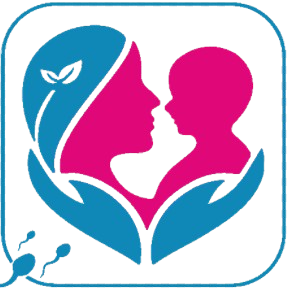Case Studies Detail.
- Home
- Case Studies
- Neurosurgery Surgeon
Gateway Casinos
Female
56 Year Old
Cervical Cancer
Q 1 What is PCOS?
It is a complex hormonal disorder with incidence around 5 -10%. In PCOS there are enlarged ovaries with small multiple cysts along with high levels of circulating hormones called androgens which in turn causes irregular periods. It is the leading cause of anovulatory infertility.
Q 2What are the signs and symptoms of PCOS?
It is a unique disease with spectrum of clinical presentations.
1 It generally starts around puberty where it causes irregular periods, missed or delayed periods, short and light periods or sometimes heavy bleeding.
2 Excess of abnormal hair growth on cheeks, chin and other parts of body like thighs, legs etc.
3 Acne on face, chest and back, oily skin
4 Obesity and difficulty in maintaining ideal body weight
5 There may be dark skin patches around neck folds, armpits. This is called acanthosis nigricans.
6 Skin tags on the neck
7 Thinning hair on the scalp
8 Difficulty in conceiving as regular ovulation does not happen.
9 Depression
Q3 What causes PCOS?
The exact cause of PCOS is not known. The pathology could be genetic or environmental but is related to insulin resistance. This hormone is produced by pancreas and helps in conversion of food into energy. When you are resistant to it there is rise in sugar level and body makes more insulin. This increase in insulin level causes male hormones androgens to rise and causes irregular periods, acne and excessive hair growth.
Q4What are the risk factors of PCOS?
PCOS can run in families with no clear-cut mode of inheritance. If one is having obesity, then the risk is higher.
Q5 How to diagnose PCOS?
1Complete history including menstrual history and family history is needed.
2 Physical examination to check for BMI, acne , skin tags , abnormal hair growth etc.
3 Investigations like hormonal profile- TSH, AMH, FSH, LH, prolactin, testosterone, DHEAS sugar levels and lipid profile may be needed.
4Pelvic ultrasound to look for ovarian multiple small follicle cysts [fluid – filled sac with immature eggs]
Q6How to manage PCOS?
A combination of medications and other supportive therapy are needed to manage the symptoms but most important is lifestyle modification.
Losing the extra kilos sometimes helps in making periods regular. Regular physical activity helps in reducing weight and mood booster. Diet control with exercise helps in maintaining the BMI towards normal
Hormonal birth control pills can help in making periods more regular and prevent endometrial hyperplasia [ excessive thickness of endometrium]
Medicines like metformin, myoinositol, vit D helps in reducing insulin resistance, reducing weight and improving ovulation.
Stress management and relaxation e.g. yoga, meditation can be beneficial
Q7How to manage PCOS with infertility
All the above mentions are tips and tricks which helps in conceiving. Many women face challenges when trying to get pregnant. Along with these medications like letrozole can restore ovulation after checking uterine factors, tubal patency and male parameters.
Gonadotropins are the used as second line if ovulation inducing medicines are not working and are associated with higher success rate. Laparoscopic ovarian drilling is the for those where medicines is not working . The risk includes adhesions, infection and decrease ovarian reserve.
IVF is usually the next line of management with good chances of pregnancy rates. . In these cases embryo cryopreservation with deferred transfer is a safer approach .it is really important to consult with an IVF specialist to discuss the fertility plan .
Q8 How to manage PCOS – long term health risk?
The cyst seen in the ovaries are not painful or dangerous. Around 40% of women with PCOS can have associated metabolic syndrome. Diabetes, high blood pressure hyperlipidemia and endometrial cancer are the long-term health risk. Women should have lipid profile, oral glucose tolerance test and blood pressure monitoring done regularly .
PCOS HAS AN IMPACT ON FERTILITY AND OVERALL REPRODUCTIVE HEALTH. WITH THE PROPER GUIDANCE, WOMEN WITH PCOS CAN MANAGE THEIR SYMPTOMS AND ACHIEVE MOTHERHOOD EASILY.
Challenges Encountered
Lorem ipsum dolor sit amet, consectetur adipiscing elit. Curabitur suscipit dolor vulputate odio gravida, non eleifend quam fringilla.
Treatment Methods
Lorem ipsum dolor sit amet, consectetur adipiscing elit. Curabitur suscipit dolor vulputate odio gravida, non eleifend quam fringilla.
Treatment Results
Lorem ipsum dolor sit amet, consectetur adipiscing elit. Curabitur suscipit dolor vulputate odio gravida, non eleifend quam fringilla. Pellentesque habitant morbi tristique senectus et netus et malesuada fames ac turpis egestas. Pellentesque habitant morbi tristique senectus et netus et malesuada fames ac turpis egestas. Suspendisse lectus nisi, laoreet id venenatis eget.

